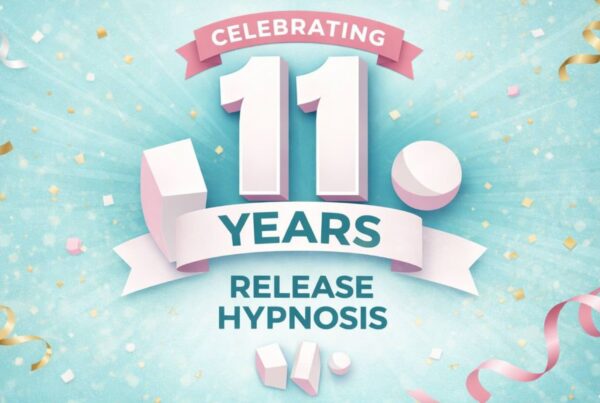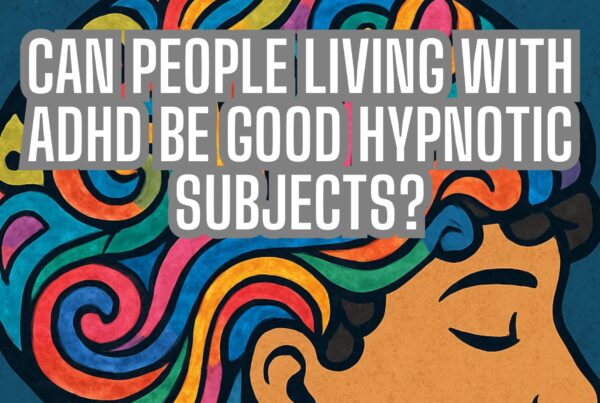“Is Hypnosis Real?” Exploring the Facts
Hypnosis has intrigued people for centuries. From stage acts to self-help seminars, it is often surrounded by mystery and skepticism. But is hypnosis real? Research and firsthand experiences suggest that hypnosis is not only real but also highly effective in therapeutic settings. This article dives into the science, clears up misconceptions, and highlights the benefits of this fascinating practice.
What is Hypnosis and How Does It Work?
First, let’s define what hypnosis is… or at least attempt to. This is because hypnosis can often have as many definitions as there are therapists who practice it. Hypnosis is often described as a state of heightened awareness and suggestibility. It’s a natural phenomenon, akin to daydreaming or being engrossed in a book. During hypnosis, individuals experience focused attention, making them more receptive to suggestions aimed at promoting positive change.
A professional hypnotherapist uses guided techniques to help individuals harness the power of their subconscious mind, facilitating everything from stress reduction to overcoming bad habits.
Scientific Evidence Supporting Hypnosis
The question “Is hypnosis real?” can be answered with scientific evidence. Numerous studies demonstrate its efficacy in treating various conditions:
- Pain Management: A meta-analysis by Montgomery et al. (2002) revealed that hypnosis effectively reduces pain during medical procedures.
- Hot Flashes: Research by Elkins et al. (2013) showed significant improvement in menopausal women using hypnotherapy for hot flashes.
- Anxiety Reduction: Hypnosis is often recommended alongside cognitive behavioral therapy for managing anxiety and stress.
Common Myths About Hypnosis Debunked
“Is hypnosis real, or is it just mind control?”
Contrary to popular belief, hypnosis isn’t about controlling someone’s mind. It is a collaborative process where the client retains complete control and can exit the hypnotic state at any time.
“Only highly suggestible people can be hypnotized.”
While suggestibility varies, research by Green et al. (2003) indicates that most people can experience beneficial effects from hypnosis.
The Power of the Subconscious Mind in Hypnosis
One reason why hypnosis is so effective is because it taps into the power of the subconscious mind. Our subconscious mind is responsible for our automatic thoughts, feelings, and behaviors. By accessing the subconscious through hypnosis, we can make positive changes to these patterns.
Think of the subconscious mind like an iceberg. The part that’s visible above the water represents our conscious mind, which is only a small fraction of the whole iceberg. The vast majority of the iceberg is hidden beneath the surface, representing our subconscious mind. Hypnosis allows us to dive beneath the surface and access the power of the subconscious mind to create positive change.
The Role of Mindfulness
In addition to hypnosis, mindfulness techniques can also be worked into sessions. Mindfulness is the practice of being present in the moment, without judgment. It’s about paying attention to our thoughts, feelings, and physical sensations without getting caught up in them.
Research has shown that mindfulness can be effective in reducing anxiety, depression, and stress (Hofmann et al., 2010). When combined with hypnosis, mindfulness can enhance the effectiveness of hypnotherapy.
What Can Hypnosis Help With?
Hypnosis can be used to help with a variety of issues, including:
- Anxiety and stress
- Depression
- Insomnia
- Chronic pain
- Smoking cessation (or Stop Smoking)
- Weight loss
- Phobias and fears
The list goes on and on. Hypnosis is a versatile tool that can help with many different issues.
“Is Hypnosis Real?” Many Will Tell You It Is!
Hypnosis is a real and effective tool for addressing a variety of issues. Despite common misconceptions, hypnosis is not mind control, and it can be effective for people across a wide range of suggestibility levels. By tapping into the power of the subconscious mind and incorporating mindfulness techniques, hypnotherapy can help clients overcome their problems with anxiety and uncomfortable thoughts and feelings.
Release Hypnosis Melbourne Hypnotherapy
Since 2015, Lawrence Akers has been working under the name Release Hypnosis offering Hypnotherapy and ACT based work to the people of Melbourne or an online service. Based on St Kilda Rd, Release Hypnosis is an easy and convenient location to get to and accessible by the ANZAC station train and tram stop. Release Hypnosis can help with a wide range of presenting issues, and I offer a free 30 minute no obligation discovery call for those who are unsure if hypnotherapy is the right way forward for them.
Book Your FREE 30 Minute Consultation With Release Hypnosis NOW!
You may also like to read:
How to Harness the Power of Your Subconscious Mind for Positive Change
Can’t Visualise in Hypnosis? Here’s What You Can Do Instead.
Release Hypnosis Celebrates 8 Years!
What Is The Success Rate of Hypnosis?








